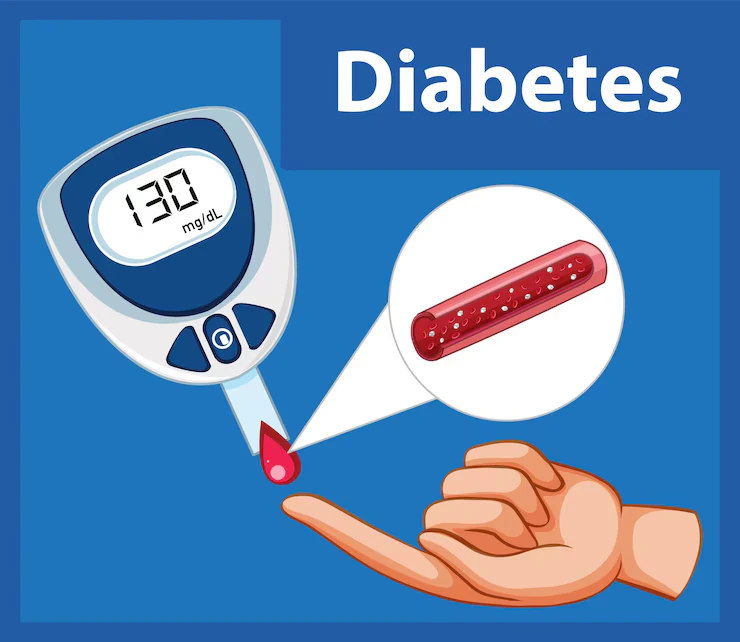-
Pushpanjali Eye Care Hospital, Golpark, Kolkata-700029
Pushpanjali Eye Care Hospital, Golpark, Kolkata-700029

By PushpanjaliEyeCare
12.12.2024
Hello Reader!
Welcome to the blog page of Pushpanjali Eye Care one of the best eye hospital in Kolkata.
Cataracts, a common condition that clouds the eye’s natural lens, can significantly impact vision, particularly in individuals with diabetes. At Pushpanjali Eye Care, one of the best eye hospitals in Kolkata, we specialize in providing advanced care and tailored solutions for diabetic patients undergoing cataract surgery. This blog delves into the unique considerations, risks, and guidelines to ensure optimal outcomes for diabetic patients.

Diabetic patients are at a higher risk of developing cataracts due to prolonged high blood sugar levels, which can alter the proteins in the lens and accelerate clouding. Early detection and timely cataract surgery are essential to prevent vision loss and improve quality of life. At Pushpanjali Eye Care, we emphasize regular eye check-ups, especially for diabetic individuals, to monitor and manage any emerging eye conditions effectively.
Cataract surgery is a routine procedure; however, diabetic patients require additional care to minimize complications and ensure a smooth recovery. Here are the key preparatory steps:

Before cataract surgery, diabetic patients must take specific precautions to ensure the procedure’s safety and effectiveness. Here are the essential steps that should be followed:
Maintaining stable blood sugar levels is crucial before cataract surgery. Diabetic patients should aim for:
Fluctuating or elevated glucose levels can negatively impact eye health and surgical outcomes, so stringent monitoring and control of blood sugar are vital.
Coordination with healthcare providers is essential. Diabetic patients should involve their endocrinologist or primary care physician in the surgical planning process. This ensures that the eye surgeon is fully informed about the patient’s diabetes management and any adjustments needed in medications leading up to the surgery.
A comprehensive eye examination is necessary to evaluate the overall health of the eyes, particularly checking for signs of diabetic retinopathy. This assessment helps in planning the surgical approach and mitigating potential complications during and after surgery.
Patients may need to adjust their diabetes medications before surgery. For instance, insulin-dependent patients might be advised not to take their morning insulin on the day of surgery but to bring it along for administration afterward. Such adjustments help stabilize blood sugar levels around the time of surgery.
Diabetic patients should avoid:
Patients should adhere strictly to any pre-surgical instructions provided by their healthcare team, including using prescribed eye drops or medications as directed. Additionally, they should stop wearing contact lenses several days before the surgery to avoid irritation.
The choice of anesthesia must be carefully considered for diabetic patients, taking into account their blood sugar control and potential interactions with diabetes medications. Discussing these factors with the surgical team is essential for a safe anesthesia plan.
Post-surgery, managing blood sugar levels remains a priority to promote healing and minimize complications such as infections or delayed recovery. Regular follow-up appointments are crucial for monitoring both eye health and diabetes management post-surgery.

While cataract surgery is generally safe, diabetic patients face unique challenges that require expert attention:
Also Read: How to Prevent Glaucoma from Worsening?

Glycemic control plays a crucial role in the success of cataract surgery for diabetic patients. Poor blood sugar management can lead to several complications that may affect surgical outcomes and recovery. Here’s how glycemic control influences the success of cataract surgery in diabetics:
Maintaining optimal blood glucose levels is essential for wound healing. Elevated blood sugar can impair the body’s ability to heal, leading to:
Diabetic patients who have poor glycemic control face a higher likelihood of experiencing complications after cataract surgery:

To minimize risks, it is recommended that diabetic patients achieve specific blood sugar targets before undergoing cataract surgery:
Achieving these targets reduces the likelihood of complications and enhances recovery prospects.
Glycemic control can also affect the choice of surgical techniques and overall outcomes:
Long-term glycemic control is critical not only for immediate surgical success but also for maintaining eye health postoperatively:

The postoperative period is critical for diabetic patients to ensure successful outcomes. Follow these guidelines for a smooth recovery:
A: Yes, cataract surgery is safe for diabetic patients when performed with proper pre-operative assessments and post-operative care.
A: Diabetes can slow healing and increase the risk of complications like infections or macular edema, but these risks can be managed with expert care.
A: Patients should maintain stable blood sugar levels, undergo a comprehensive eye exam, and follow their doctor’s instructions on medications.
A: In some cases, surgery may stress the retina, but with close monitoring and management, progression can be minimized.
A: Pushpanjali Eye Care offers advanced technology, experienced ophthalmologists, and personalized care tailored for diabetic patients.
Pushpanjali Eye Care is recognized as one of the best eye hospitals in Kolkata for its commitment to excellence and patient-centric approach. Our experienced ophthalmologists and advanced technology ensure precise and effective cataract surgery for diabetic patients. From pre-operative evaluations to post-surgery care, we prioritize your eye health and overall well-being.
Cataract surgery for diabetic patients requires meticulous planning and expert care to address the unique risks and challenges involved. At Pushpanjali Eye Care, we combine medical expertise with compassionate care to deliver exceptional outcomes. If you or a loved one is dealing with cataracts and diabetes, don’t hesitate to consult our specialists at one of the best eye hospitals in Kolkata. Take the first step toward a clearer vision and improved quality of life today!